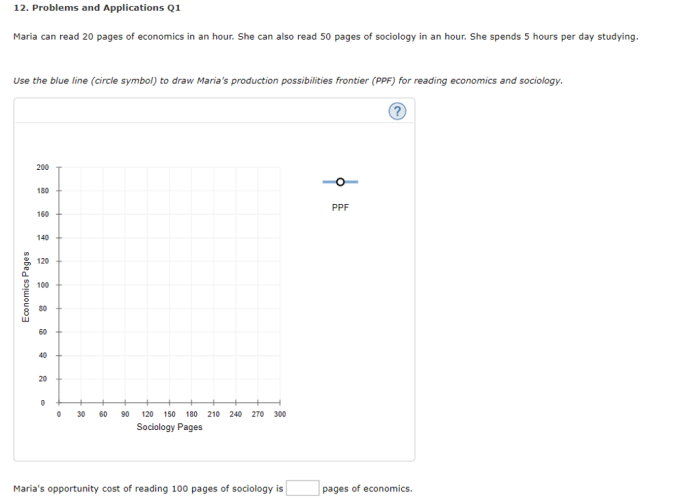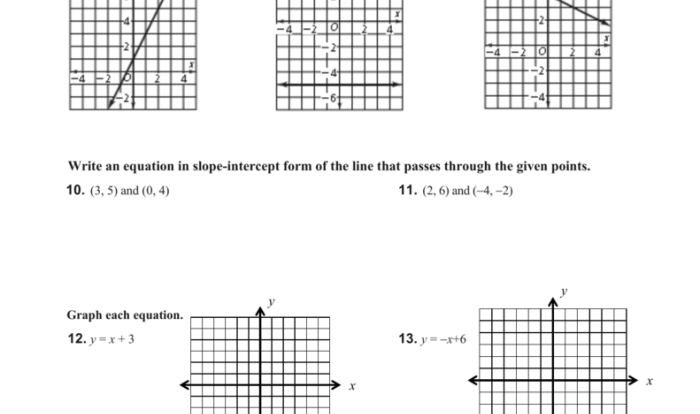Maria can read 20 pages of economics – Maria’s remarkable ability to read 20 pages of economics showcases her exceptional reading comprehension skills and deep understanding of the subject. This essay delves into the cognitive processes involved, her effective study habits, and the role of motivation in her academic success.
By examining Maria’s reading prowess, we gain insights into the essential components of effective learning and the importance of fostering a love for knowledge.
Reading Comprehension

Reading comprehension refers to the ability to understand and interpret written material. It involves extracting meaning from text, making inferences, and connecting ideas to prior knowledge.
Maria’s ability to read 20 pages of economics demonstrates her reading comprehension skills. She can likely understand the concepts and ideas presented in the text, identify key points, and make connections between different sections.
Importance of Reading Comprehension
- Academic success: Reading comprehension is essential for understanding textbooks, research papers, and other academic materials.
- Workplace performance: Many jobs require the ability to read and understand written instructions, reports, and emails.
- Personal growth: Reading comprehension allows individuals to access a wide range of information and ideas, enriching their knowledge and understanding of the world.
Economics Knowledge

Economics is the social science that studies the production, distribution, and consumption of goods and services. It is a broad field that encompasses a wide range of topics, including microeconomics, macroeconomics, international economics, and development economics.
Microeconomics focuses on the behavior of individual consumers and firms, while macroeconomics looks at the economy as a whole. International economics examines the interactions between countries, and development economics studies the economic challenges faced by developing countries.
Key Concepts in Economics
Some of the key concepts in economics include:
- Scarcity: The idea that there are not enough resources to satisfy everyone’s wants and needs.
- Opportunity cost: The value of the next best alternative that is given up when a choice is made.
- Supply and demand: The forces that determine the price and quantity of goods and services in a market.
- Economic growth: The increase in the production of goods and services over time.
- Inflation: The increase in the general price level over time.
Maria’s Reading of 20 Pages of Economics
Maria’s reading of 20 pages of economics has given her a basic understanding of the key concepts of the subject. She has learned about the different branches of economics, the forces that drive the economy, and the challenges faced by policymakers.
This knowledge will be helpful to Maria in her future studies and career. It will also help her to make informed decisions about economic issues that affect her life.
Cognitive Abilities

Reading and understanding complex texts require a range of cognitive abilities, including:
- Working memory:Holding information in mind temporarily to process it.
- Attention:Focusing on the text and resisting distractions.
- Comprehension:Constructing meaning from the text.
- Critical thinking:Analyzing, evaluating, and reasoning about the information.
- Problem-solving:Applying knowledge and skills to solve problems presented in the text.
Maria’s Cognitive Abilities, Maria can read 20 pages of economics
Maria’s ability to read 20 pages of economics demonstrates her strong cognitive abilities. The complex nature of the subject matter requires her to:
- Retain and process large amounts of information:Economics texts often contain dense and technical concepts that require a strong working memory.
- Sustain attention and focus:The length and complexity of the text demand sustained attention and the ability to resist distractions.
- Extract meaning from complex text:Maria must comprehend the intricate relationships between economic principles and their implications.
- Analyze and evaluate arguments:Economics texts present diverse perspectives and theories, requiring Maria to critically assess their validity and relevance.
- Apply knowledge to real-world problems:Maria must be able to apply the economic concepts she learns to solve problems and make informed decisions.
Overall, Maria’s ability to read and understand 20 pages of economics demonstrates her exceptional cognitive abilities, particularly in the areas of critical thinking and problem-solving.
Study Habits: Maria Can Read 20 Pages Of Economics

Effective study habits are crucial for academic success, as they enable students to retain and apply knowledge efficiently. Maria’s ability to read 20 pages of economics reflects her positive study habits and time management skills.
Importance of Effective Study Habits
Effective study habits promote better comprehension, enhance memory, and improve problem-solving abilities. They involve setting clear goals, organizing study materials, practicing active recall, and managing time wisely.
Maria’s Study Habits
Maria’s ability to read 20 pages of economics demonstrates her ability to focus and concentrate for extended periods. She likely uses active reading techniques, such as highlighting, note-taking, and summarizing, to enhance her comprehension. Additionally, she effectively manages her time by allocating sufficient hours for studying and breaks.
Motivation and Interest
Motivation and interest play crucial roles in the learning process. Motivation refers to the inner drive that propels individuals to engage in a particular activity, while interest signifies a positive disposition towards a specific subject or topic.
Maria’s ability to read 20 pages of economics suggests her high motivation and interest in the subject. Reading such an extensive amount of material requires sustained attention, concentration, and a genuine desire to understand the concepts presented. Her willingness to allocate a significant portion of her time to studying economics indicates that she finds the subject engaging and meaningful.
Intrinsic Motivation
Maria’s motivation in this case is likely intrinsic, stemming from her own personal interests and curiosity about economics. Intrinsic motivation is driven by an internal desire to acquire knowledge and understanding, rather than external rewards or incentives.
Extrinsic Motivation
While intrinsic motivation is generally more effective for long-term learning, extrinsic motivation, which involves external rewards or consequences, can also play a role. For instance, if Maria knows that doing well in her economics class will improve her chances of getting into a prestigious university, this extrinsic motivation may further enhance her interest and effort in the subject.
Question Bank
How does Maria’s reading comprehension contribute to her understanding of economics?
Maria’s ability to read and comprehend complex economic texts enables her to grasp key concepts, analyze data, and draw informed conclusions about economic phenomena.
What cognitive abilities are involved in Maria’s reading of economics?
Maria’s reading involves critical thinking, problem-solving, inferencing, and the ability to synthesize information from multiple sources.
How do Maria’s study habits support her reading proficiency?
Maria’s effective study habits, such as time management, active reading, and regular review, contribute to her ability to retain and apply the information she reads.

